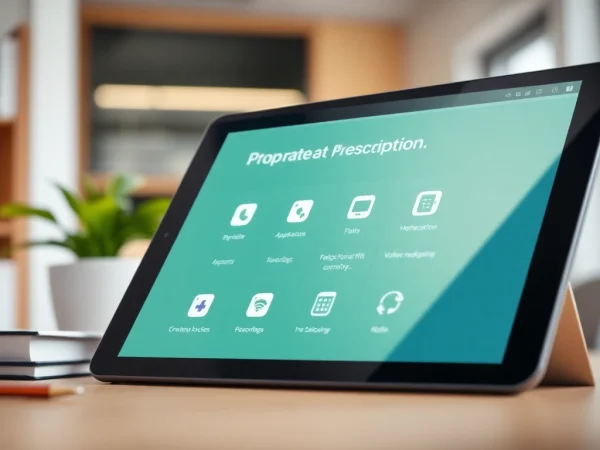Effective Strategies for Dealing with Depression: Your Comprehensive Guide
Understanding Depression
What is Depression?
Depression is more than just feeling sad; it is a common but serious mood disorder that affects how a person thinks, feels, and handles daily activities. Symptoms of depression can last for days, weeks, or even months, severely interfering with one’s on everyday life. According to data from various mental health organizations, depression can occur due to a combination of genetic, biochemical, environmental, and psychological factors. It’s essential to understand that depression isn’t a sign of weakness or something one can just “snap out of.” Rather, it’s a medical condition that requires proper attention and care.
Signs and Symptoms of Depression
Recognizing the signs and symptoms of depression is the first step toward seeking help and treatment. Common symptoms include:
- Persistent feelings of sadness, anxiety, or emptiness.
- Loss of interest or pleasure in hobbies and activities that were once enjoyable.
- Changes in sleep patterns, such as insomnia or sleeping too much.
- Fatigue or loss of energy.
- Changes in appetite or weight (either weight loss or gain).
- Difficulties concentrating, making decisions, or remembering details.
- Feelings of worthlessness or excessive guilt.
- Thoughts of death or suicide.
If you or someone you know is experiencing these symptoms, it is crucial to reach out for support and explore options for dealing with depression.
Causes and Risk Factors of Depression
The causes of depression are multifaceted and can vary based on individual circumstances. Several factors contribute to the development of depression, including:
- Genetics: A family history of depression can increase the likelihood of developing the disorder.
- Chemistry: Imbalances in certain neurotransmitters, such as serotonin and dopamine, can play a significant role.
- Environmental factors: Situations involving trauma, abuse, neglect, or significant life changes can trigger depression.
- Psychological factors: Low self-esteem, chronic anxiety, or other mental health disorders increase the risk.
Practical Techniques for Dealing with Depression
Self-Care Practices to Manage Depression
Implementing self-care practices can be a powerful way to combat the effects of depression. Here are some self-care strategies:
- Prioritize sleep: Establishing a regular sleep schedule can help stabilize mood and energy levels.
- Nutrition: A balanced diet rich in nutrients can positively impact mood. Foods high in omega-3 fatty acids, whole grains, fruits, and vegetables can provide much-needed support.
- Limit alcohol and nicotine: Both substances can exacerbate symptoms of depression and should be consumed sparingly.
- Routine: Creating and sticking to a daily routine can offer structure and a sense of normalcy.
Mindfulness and Meditation for Depression Relief
Mindfulness and meditation are effective techniques for reducing symptoms of depression. Regular mindfulness practice can help increase awareness of one’s thoughts and feelings, allowing individuals to manage them more effectively. Here are some practices to consider:
- Meditation: Daily meditation for even a few minutes can create a powerful relaxation response, reducing stress and anxiety.
- Mindful breathing: Taking deep breaths and focusing on breathing patterns can help ground you in the present moment.
- Journaling: Writing about your experiences or emotions can clarify feelings and provide insight into your mental state.
Physical Activity as a Tool for Dealing with Depression
Regular physical activity is strongly linked to improved mental health. Exercise releases endorphins, which can help lift mood and reduce symptoms of depression. Here’s how you can incorporate physical activity into your routine:
- Find a physical activity you enjoy: Whether it’s walking, swimming, biking, or dancing, engaging in something enjoyable will make you more likely to stick with it.
- Set realistic goals: Start small and gradually increase the intensity and duration of your workouts.
- Be consistent: Try to aim for at least 30 minutes of moderate physical activity on most days of the week.
Seeking Professional Help
Types of Therapies for Depression
Professional help is crucial for many battling depression. There are different therapeutic approaches that can be beneficial, including:
- Cognitive Behavioral Therapy (CBT): This evidence-based approach helps individuals identify and change negative thought patterns and behaviors associated with depression.
- Psychodynamic Therapy: This therapy focuses on uncovering unconscious emotions and thoughts that may be contributing to depressive feelings.
- Interpersonal Therapy (IPT): IPT works to improve interpersonal relationships and social functioning to help reduce the symptoms of depression.
Medication Options for Dealing with Depression
For some, medication can be a vital component of managing depression. Antidepressants can help adjust the brain’s chemistry and alleviate symptoms. Some commonly prescribed antidepressants include:
- Selective Serotonin Reuptake Inhibitors (SSRIs): These are often the first line of treatment as they typically have fewer side effects.
- Tricyclic Antidepressants (TCAs): An older class of antidepressants that can be effective for some individuals.
- Monoamine Oxidase Inhibitors (MAOIs): Used less frequently due to dietary restrictions and side effects but effective for certain cases of depression.
How to Choose the Right Mental Health Professional
Selecting the right mental health professional is an essential step toward recovery. Here are some tips:
- Research credentials: Check the professional’s qualifications and areas of expertise.
- Consider experience: Look for someone with experience treating depression specifically.
- Assess comfort level: It’s important to feel comfortable and understood by your mental health professional.
Support Systems and Resources
Building a Support Network for Dealing with Depression
Having a robust support network is instrumental in overcoming depression. Here’s how to build one:
- Reach out to friends and family: Let loved ones know how they can support you.
- Join support groups: These are often composed of individuals who share similar experiences and challenges, providing mutual understanding and encouragement.
- Stay connected: Regular contact with supportive individuals can help combat feelings of isolation.
Online Resources and Hotlines
In addition to personal support systems, online resources can provide valuable information and community support. Consider these options:
- Crisis hotlines: Confidential support is available 24/7 for those in need.
- Mental health websites: Numerous organizations offer online resources, self-help strategies, and forums for discussion.
Books and Literature on Depression
Reading about depression can offer insights and strategies for managing symptoms. Important literature includes:
- “Feeling Good: The New Mood Therapy” by David D. Burns: This book introduces cognitive behavioral techniques to alleviate depression.
- “The Noonday Demon: An Atlas of Depression” by Andrew Solomon: A comprehensive exploration of depression’s impact on life.
- “Lost Connections: Uncovering the Real Causes of Depression – and the Unexpected Solutions” by Johann Hari: A look at the societal factors contributing to depression and potential solutions.
Long-Term Management of Depression
Developing Coping Strategies for Dealing with Depression
Long-term management of depression involves developing coping strategies that can help individuals navigate difficult times.
- Identify triggers: Recognizing personal triggers can help mitigate their impact.
- Set daily goals: Setting small, achievable goals can provide direction and a sense of accomplishment.
- Practice gratitude: Keeping a gratitude journal can shift focus from negative experiences to positive aspects of life.
Tracking Your Progress and Adjusting Your Approach
Monitoring your emotional health is crucial for making informed decisions about your care. Consider:
- Journaling your emotions: Document feelings over time to identify patterns and triggers.
- Seize teachable moments: Use opportunities to learn about what coping strategies work best for you.
Staying Engaged in Life Beyond Depression
As you move through recovery, it’s important to stay engaged in life. Here are some suggestions:
- Pursue interests: Reengage with hobbies or discover new interests that spark joy and excitement.
- Volunteer: Helping others can positively impact your well-being.
- Set future goals: Focus on aspirations that give life purpose and direction.










